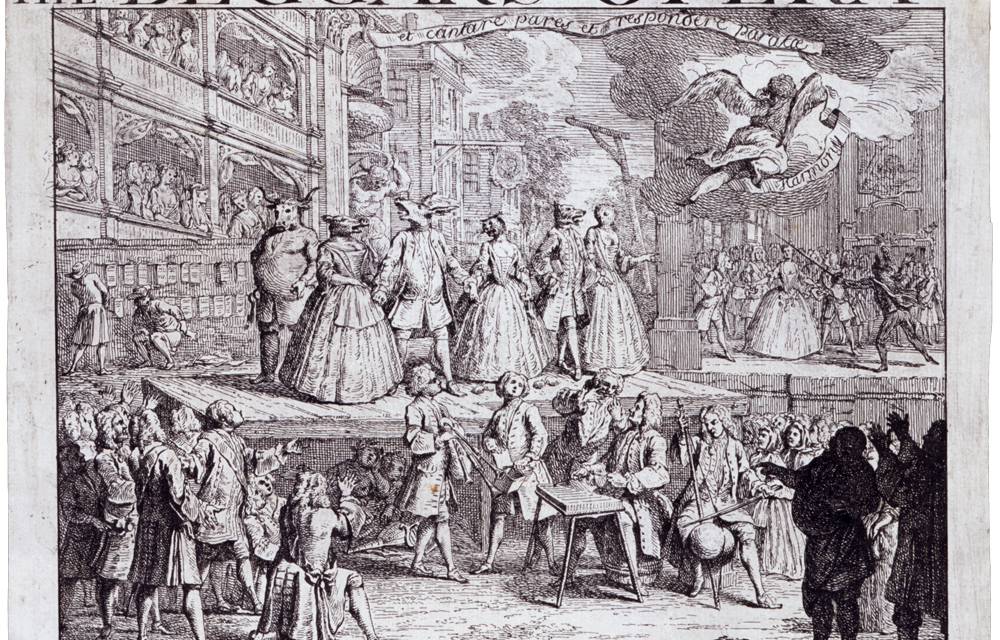Name: The Beggar’s Opera
Composer: Johann Christoph Pepusch
Librettist: John Gay
First performed: 29 January 1728 at Lincoln’s Inn Fields Theatre, London
In one sentence: a satirical ballad opera telling the story of London’s criminal underbelly.
Famous characters: Macheath, a captain of a robber gang, well known as Mack the Knife in Brecht and Weill’s The Threepenny Opera (1928); his wife Polly Peachum. Mr Peachum, a powerful criminal leader and Polly’s father. Lucy Lockit, daughter of a corrupt jailer and also Macheath’s lover.
Both Lawrence Olivier and Roger Daltry have played Captain Macheath; the former in a 1953 film, while Daltry took the role in a 1983 BBC adaptation. Kiri Te Kanawa sang Polly Peachum in a 1981 production by The Australian Opera; Joan Sutherland played Lucy Lockit in the same production.
Music you might recognise: the opera utilises popular, simple tunes to mock what many British believed to be the overly virtuosic and artificial airs of Italian opera. The best-known numbers include: Can Love Be Control’d By Advice?’ (Polly, Act 1); ‘Let Us Take The Road’ (Chorus of Highwaymen, Act 2); ‘At The Tree I Shall Suffer’ (Macheath, Act 2); ‘How Cruel Are The Traitors’ (Lucy, Act 2); and ‘In The Days Of My Youth’ (Mrs Diana Trapes, Act 3).
Synopsis
The opera is set in and around London’s notorious Newgate Prison. It opens in the home of criminal mastermind Peachum and his wife. The couple are horrified to find out from their daughter Polly that she has married highwayman and gang leader Captain Macheath. However, they quickly hatch a plan to turn Macheath in to the authorities. The criminal would then be hanged and they would benefit from a reward and Polly’s inheritance of his property.
Macheath is betrayed and taken to Newgate Prison. Here he encounters Lucy, daughter of the jailkeeper Lockit. The latter is a business partner of Peachum and the two have been conspiring to bring down the captain.
Lucy is enraged because Macheath had previously promised to marry her. Polly enters the scene, but Macheath denies that they are married. Mollified, Lucy agrees to help Macheath escape. However, the unfortunate highwayman is captured again and dragged back to Newgate Prison.
The two women are already there, arguing over which of them is Macheath’s true love. While this is going on, another four women arrive at the prison, all claiming to be pregnant by Macheath and demanding recompense. It’s all too much for the captain and he calls for the hangman.
But the titular Beggar – the opera’s narrator – states that the story must end happily. Macheath is given a reprieve and he publicly claims Polly as his wife. The piece ends with a high-spirited, carefree song and dance in celebration of the couple’s marriage.
Image
John Gay’s The Beggar’s Opera proved hugely successful, even inspiring a series of engravings by artist William Hogarth (via Wikimedia Commons).

